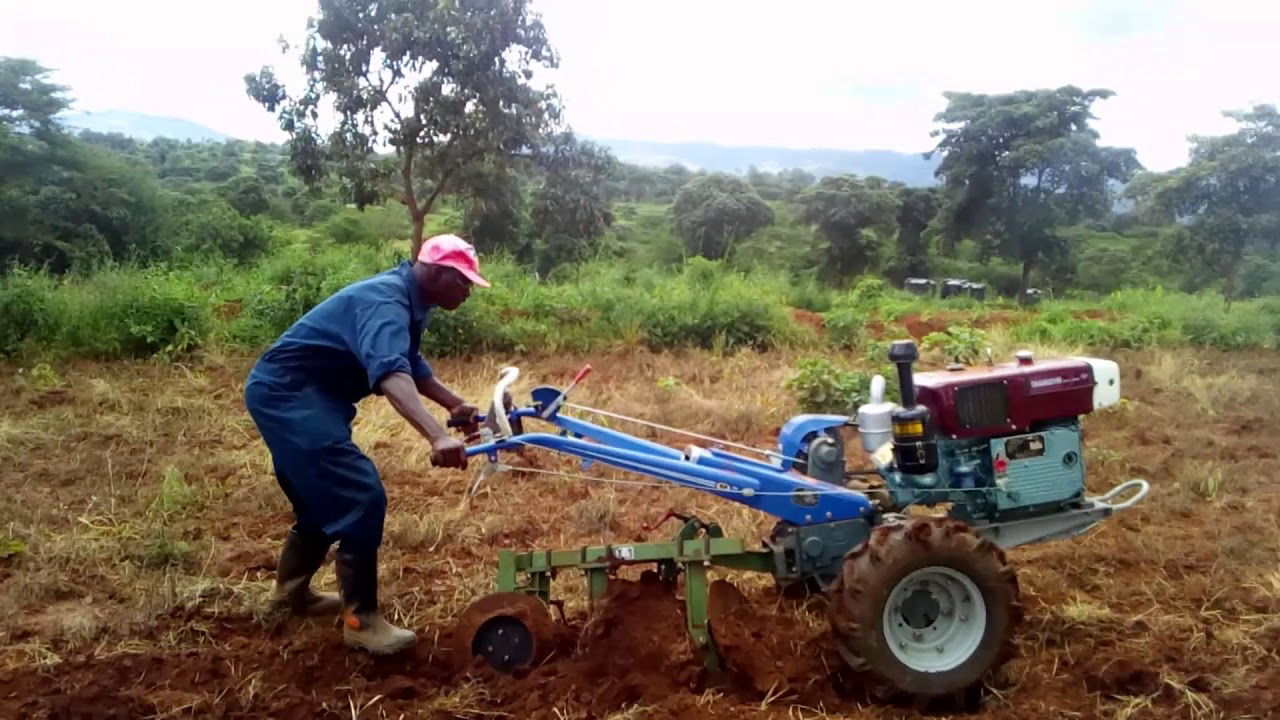Zombo District Leaders Push for Mindset Change in Adoption of Walking Tractors
Local leaders in Zombo District are advocating for a transformation in the mindset of smallholder farmers, who have been hesitant to embrace the walking tractors recently provided by the Ministry of Agriculture, Animal Industry, and Fisheries (MAAIF). Despite the promise of increased efficiency in farming, the tractors have been largely underutilized across the district, with many farmers rejecting them due to concerns about high operational costs and the labor-intensive nature of handling them.
In a bid to modernize agriculture and increase productivity, MAAIF last year distributed 30 walking tractors to Zombo District's local government, with each of the 15 lower local government units receiving two tractors. These machines were intended to revolutionize smallholder farming by improving land preparation, tillage, and crop management, thus increasing household-level agricultural output.
However, over a year since their delivery, these tractors remain largely unused, with some local leaders reporting that not a single farmer has shown interest in utilizing them. Melki Onyutha Orwothuwun, the LCIII chairperson of Padea Town Council, revealed that the tractors had been dismantled and stored indoors at the council headquarters to prevent deterioration. He noted, "We're actively sensitizing the community about the benefits of mechanized tillage with these tractors, promoting their use at churches, mosques, burials, and other gatherings."

Despite these efforts, farmers in the district are not taking up the opportunity to use the equipment. Denis Dongwa, the Secretary of the District Production Committee, shared that the local government had convened several meetings with production technocrats and extension officers to address the challenge of deploying the walking tractors efficiently. "Last month, we held a departmental briefing that encompassed district staff and all extension officers, and I requested a comprehensive report on the utilization of these tractors," said Dongwa.
As part of the tractor distribution, two individuals from each local government unit were trained as operators to facilitate their use in agricultural activities. However, Onyutha pointed out that these trained operators are currently idle, as farmers are not requesting their services.
The Benefits of Walking Tractors
Walking tractors, also known as two-wheel tractors, are designed to provide smallholder farmers with a versatile and cost-effective alternative to larger, four-wheeled tractors. These machines are ideal for tasks such as plowing, harrowing, and hauling. Unlike traditional tractors, farmers walk behind these units to steer them through the fields, which makes them easier to maneuver and more affordable.
Agricultural experts emphasize the affordability and simplicity of walking tractors, noting that they offer smallholder farmers a low-cost option without compromising field performance. "For smallholder farmers facing tight budgets, these machines offer a low-cost alternative to traditional tractors without sacrificing much in terms of field performance," said one expert.
Douglas Rupiny, District Councillor for Padea Town Council, praised the tractors' versatility. "They're ideal for plowing, transporting harvests, and even serving as stationary power sources for tasks like threshing or milling. Their adaptability is a boon for farmers with diverse needs but limited resources."
Despite the tractors' potential, there is growing concern among local leaders that prolonged disuse could lead to mechanical problems and deterioration. Rupiny urged farmers from neighboring sub-counties to come and make use of the tractors, emphasizing the need for action to ensure the equipment does not go to waste.
Caroline Oroma, Assistant Animal Husbandry Officer and head of the production department in Warr Town Council, also echoed these concerns, calling for a shift in attitude among farmers. "We need to change the mindset and encourage farmers to adopt these tractors as part of our broader goal of agricultural development and transformation," Oroma said.
The government’s push for mechanization in agriculture is part of its broader strategy to alleviate the burden of manual labor and boost agricultural productivity in Uganda. However, local leaders recognize that more work needs to be done to overcome the reluctance of farmers and ensure that the benefits of walking tractors are fully realized.
For now, Zombo District’s leaders are doubling down on their efforts to educate and motivate farmers to embrace mechanized farming, hoping that over time, the potential of the walking tractors will be unlocked to transform smallholder farming in the region.